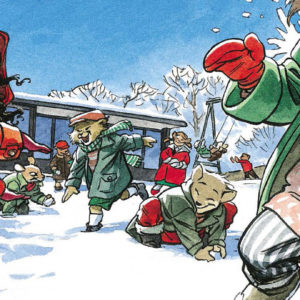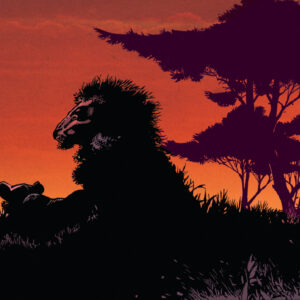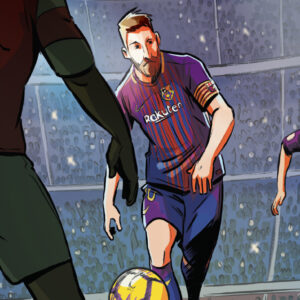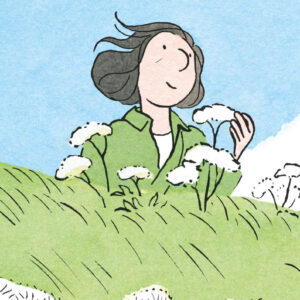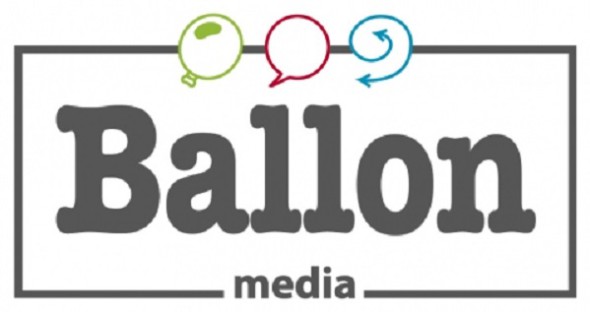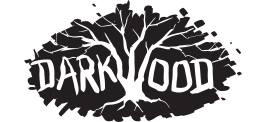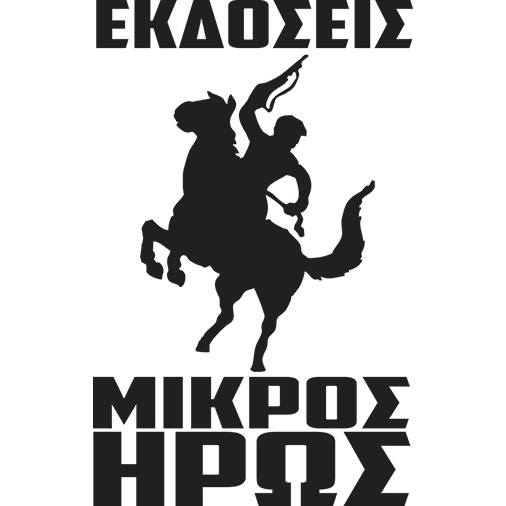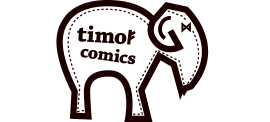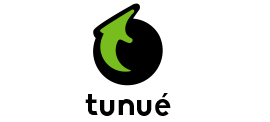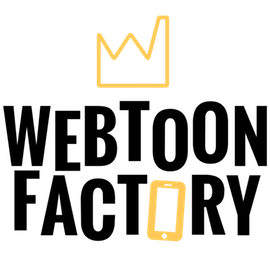January 27 is International Holocaust Remembrance Day. To commemorate this day we’ve put together the Europe Comics Jewish Interest reading list. From established creators such as Michel Kichka, Jordi Lafebre, Zidrou, André Juillard, Marvano and others come extraordinary titles that cover one of the most tragic periods in world history.
Marcel Rayman is executed by firing squad on 21st February 1944 at Fort Mont-Valérien. He is 21 years old. The Red Poster tells the story of this young, Jewish pacifist from Poland who took up arms against the heinous Nazi regime, alongside Missak Manouchian and other resistants in the FTP-MOI: a communist section of the French Resistance composed entirely of foreigners, fighting for France and liberté, egalité, fraternité until their network was dismantled. Far from the glorious clichés, this innocent young man gradually becomes a seasoned warrior and a skilled strategist. Over the course of two gruelling years, during which his family are deported, Marcel Rayman becomes versed in underground resistance fighting, armed warfare, assaults, urban guerilla tactics, death, fear… and betrayal.
1948. The state of Israel is still in its barest infancy, at risk of being crushed any moment under its enemies’ fierce attacks. It can count only on the courage of its soldiers, who are few in number and poorly equipped. As in all modern conflicts, an army is useless unless it can fly. The planes owned by the Israeli military, the Tsahal, are made up of parts stripped from planes from the Second World War; their pilots are often foreign mercenaries. It’s a war without hope, fought by exhausted soldiers and surrounded on all sides by crushing, hostile powers. A war where only true heroes could possibly make a difference…
I am a child of the Second Generation of the Shoah. It took me over thirty years to understand. A childhood burdened by the silence of traumatized parents who spoke in Yiddish when they didn’t want their children to understand. A house where the ghosts of my grandparents and my aunts roamed, that my father carried with him everywhere, although trying to look good in a society that wanted to turn the page and build the future. And then one fine day, mourning my little brother who had just ended his own life, my father began to speak. It came out like a dam that 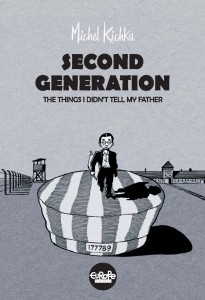 suddenly breaks, causing a huge flood.
suddenly breaks, causing a huge flood.
This tale takes place in 1937, but begins in 1944 in Paris, where, during an RAF bombing, several people are hiding in a shelter. Aimé Louzeau is among them. He tells his story in one long flashback, with a final epilogue in the shelter. It is the winter of 1937, and Aimé Louzeau lives with his mother and their servant. One day, he goes to the Quai des Orfèvres, the police prefecture of Paris, to speak with the vice squad. He currently works in the Criminal Investigation department, but crimes of passion and back alley stabbings really aren’t his thing, so he requests a transfer from Chief Inspector Séverin. The atmosphere immediately darkens, as Louzeau is thrown straight into the interrogation of a pimp called Guapito and his prostitute.
Acclaimed political cartoonist and comic book author Michel Kichka (Second Generation) brings us the fascinating, informative, and uplifting autobiographical tale of his love affair with Israel, a land he was inspired to move to at the age of twenty. From culture shock and Israeli customs to the mandatory military service, from art school to political conflict and human tragedies, he delivers a richly detailed account of his life as an artist, family man, peace advocate and Belgian Jew turned Israeli, living in the beautiful and troubled city of Jerusalem.
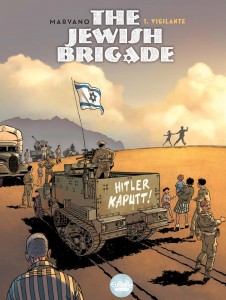 In 1945, the war in Europe is over. Camp survivors have no homes to go back to and they want only one thing – to leave Europe. No country wants to welcome them. They could feel safe in only one place, a Jewish state that does not yet exist, though it had once been
In 1945, the war in Europe is over. Camp survivors have no homes to go back to and they want only one thing – to leave Europe. No country wants to welcome them. They could feel safe in only one place, a Jewish state that does not yet exist, though it had once been
promised by the British. Without any hesitation, “displaced persons” are once again herded behind barbed wire. In some cases, they remain in the same camps from which they were supposedly liberated. A brigade forms along the frontiers of Italy, Austria and Yugoslavia, under the watchful eye of the British army. This brigade decides to do justice as it sees fit. Across Europe, the news spreads – a Jewish army in Europe! Armed Jewish soldiers! The brigade goes into action. It devotes itself to saving Jews and will stop at nothing.
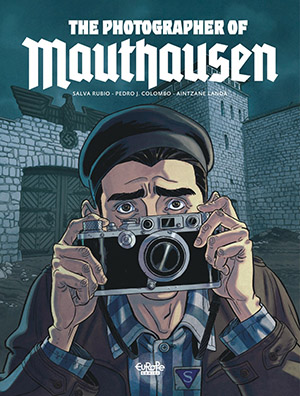 The Photographer of Mauthausen
The Photographer of Mauthausen
This is a dramatic retelling of true events in the life of Francisco Boix, a Spanish press photographer and communist who fled to France at the beginning of World War II. But there, he found himself handed over by the French to the Nazis, who sent him to the notorious Mauthausen concentration camp, where he spent the war among thousands of other Spaniards and other prisoners. More than half of them would lose their lives there. Through an odd turn of events, Boix finds himself the confidant of an SS officer who is documenting prisoner deaths at the camp.
Susie has two older sisters: the vivacious Effie, and the elegant Sandra. Life is hard when you’re the baby of the family! No one ever lets you do anything. No one ever pays any attention to you. Everyone makes fun of you. Bestselling children’s author Susie Morgenstern takes readers back to 1950s Newark and all the everyday charms and heartbreaks of the year she turned ten: spelling bees, synagogue, Christmas lights, Halloween candy, nights out at the movies, sneaking fast food. In his joyous art, Johann G. Louis lovingly evokes the era and a young girl awakening to life.
Silesia, 1930. Three children play with toy airplanes. Three friends – Max the Polish Jew, Werner and Hanna the Germans. All dream of becoming pilots, but they won’t all have the same opportunities, and the world is heading down a dark road… 1944. Max is now an ace in the US Navy, while Hanna is one of Germany’s top test pilots. Will anything remain of their old friendship, as the sides they each chose are locked in a struggle to the death?
Three friends, united by their love of flying, torn apart by different origins. Amidst the madness of WW2, what will prove strongest: friendship, or loyalty?
The year is 1938. Yaël and her sister Émilie are two ordinary children growing up in a village in the south of France. But even if they don’t understand everything they see, they are starting to catch glimpses of the secrets that adults struggle to keep. Who is hiding behind the curtain in the guest room? Why does their maternal grandfather call their father a “goy”? What does it mean to be Jewish? As Yaël grows up, she is caught up in the harsh realities of the war and the antisemitic laws of Vichy France. Her path to understanding her identity will be a painful one.
Header image: Second Generation © Michel Kichka / Dargaud
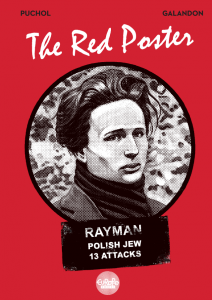
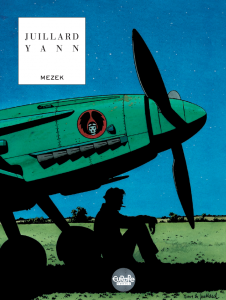
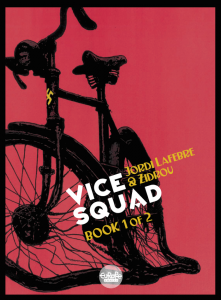
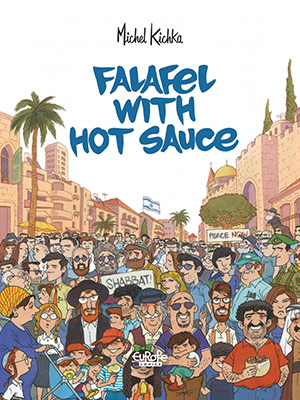 Falafel With Hot Sauce
Falafel With Hot Sauce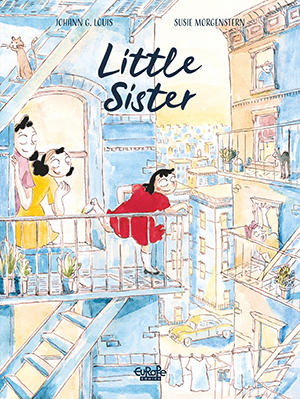 Little Sister
Little Sister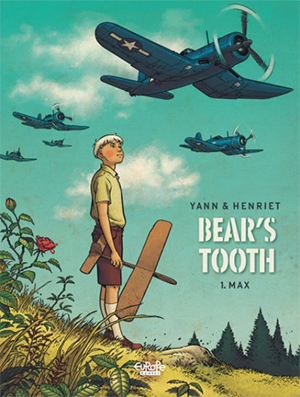
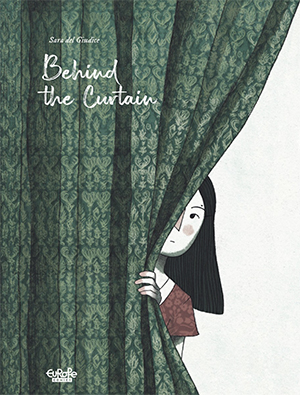 Behind the Curtain
Behind the Curtain